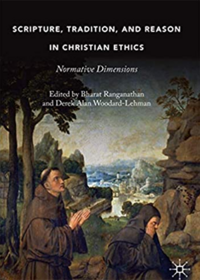
- Case Western Reserve University
- Affiliation During NDIAS Fellowship: Indiana University, Bloomington
- Graduate Fellow (2013-2014)
- "Religious Ethics and Obligations to Others"
Bharat Ranganathan received his Ph.D. in Religious Studies at Indiana University. His research and teaching interests include religious ethics, political philosophy, and philosophy of religion. In his dissertation, Mr. Ranganathan develops a demanding account of obligations toward the severely poor, defending such obligations against theorists who believe individuals don’t have any obligations toward the severely poor and theorists who believe that a demanding account won’t grant individuals the latitude to pursue either special relations or proper self-regard.
He has taught several courses in Religious Studies, including “Conceptions of the Self – East and West,” “Introduction to Buddhism,” “Religion and Democratic Theory,” and “Religion and Human Rights.” He has published an article in Journal of Religious Ethics, which identifies some of the concerns that animate his dissertation. He has presented his research-in-progress at forums including Boston University School of Theology, Florida State University, Harvard Divinity School, Indiana University, and Stanford University. Mr. Ranganathan received the Todd Sullivan Memorial Fellowship in his first year of doctoral study at Indiana University.
Publications
-
Scripture, Tradition, and Reason in Christian Ethics: Normative Dimensions
Palgrave Macmillan, 2019

How should we understand the relationship between Christian ethics and religious ethics? Among comparative, ethnographic, and normative methodologies? Between confessional and non-confessional orientations, or between theology and philosophy? This volume brings together emerging religious ethicists to engage the normative dimensions of Christian ethics. Focusing on scripture, tradition, and reason, the contributors to this volume argue for a vision of Christian ethics as religious ethics. Toward this end, they engage with scripture, interpretation, and religious practice; examine the putative divide between reason and tradition, autonomy and heteronomy; and offer proposals about the normative characterization of conceptual and practical issues in contemporary religious ethics. Collectively, the volume engages Christian thought to make an argument for the continuing relevance of normative methodologies in contemporary religious and theological ethics.